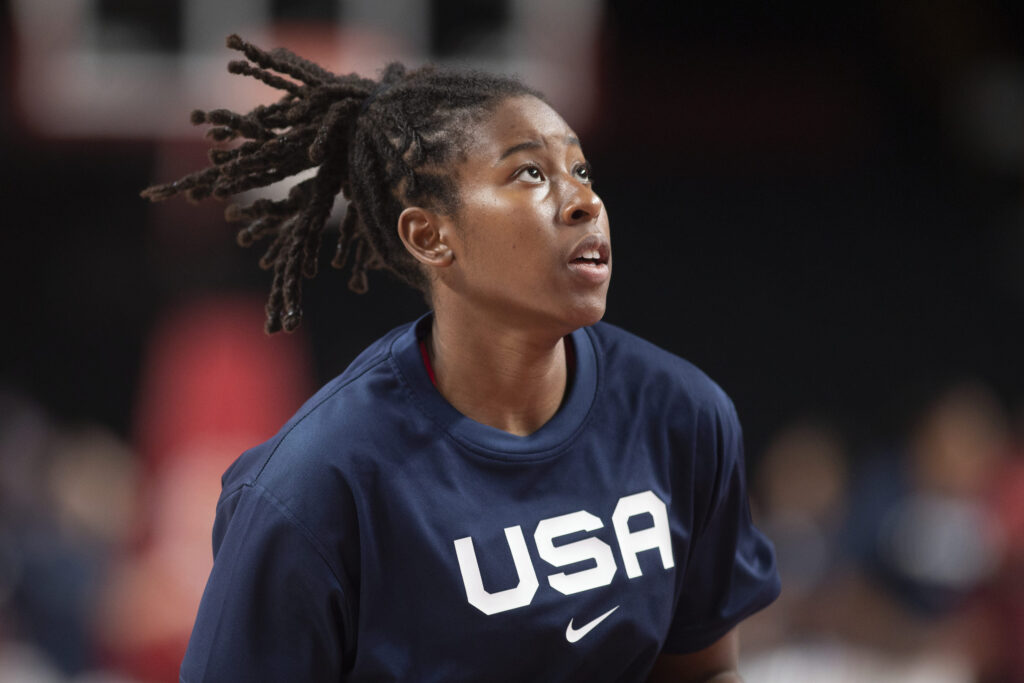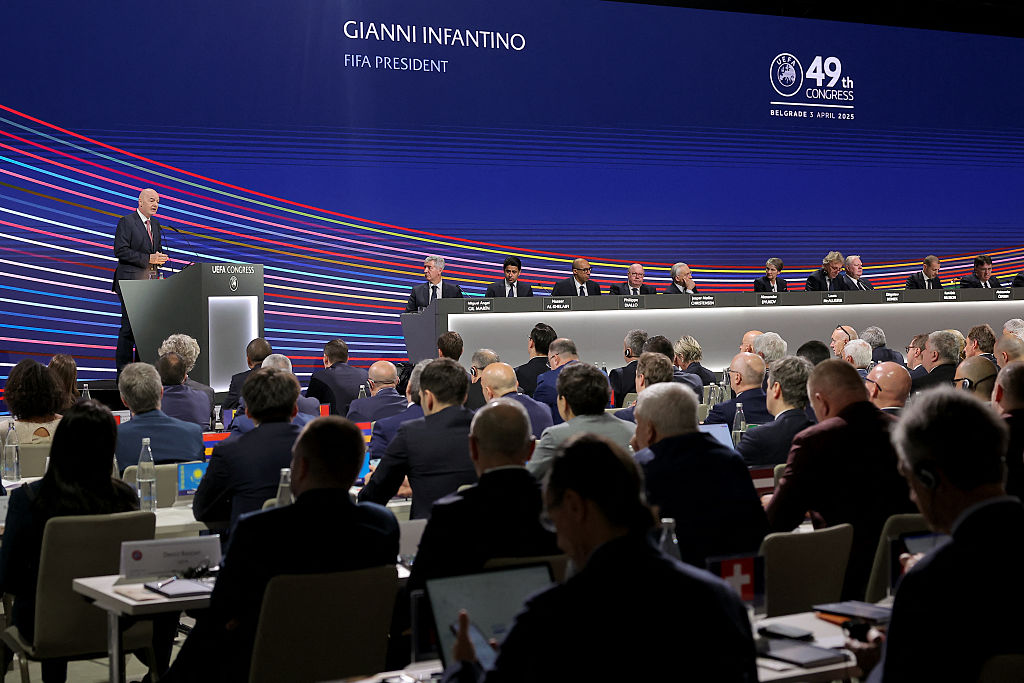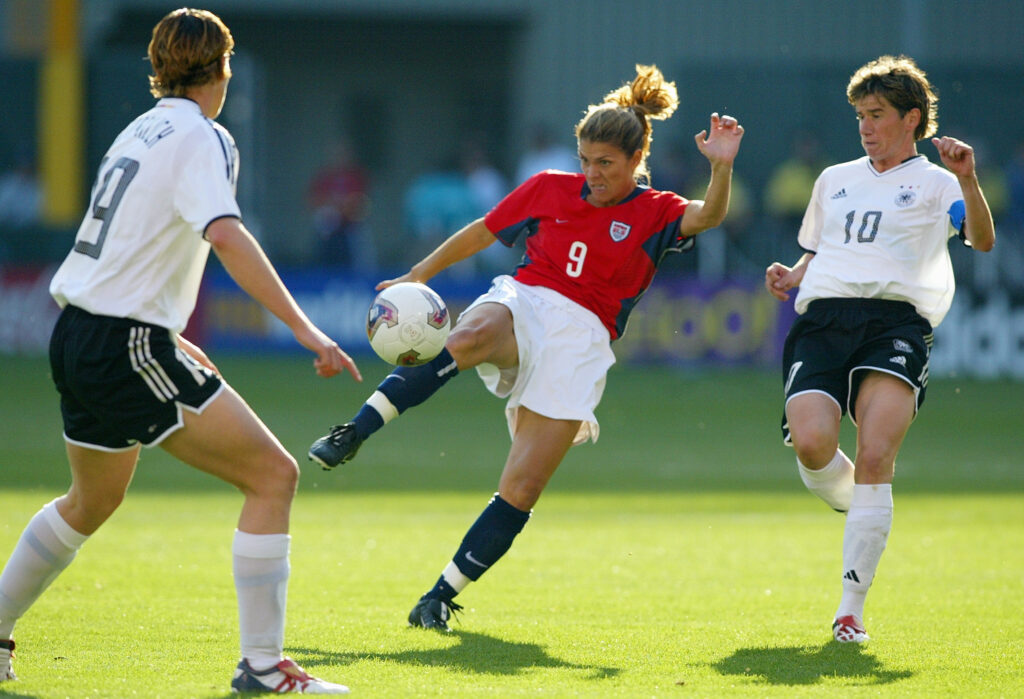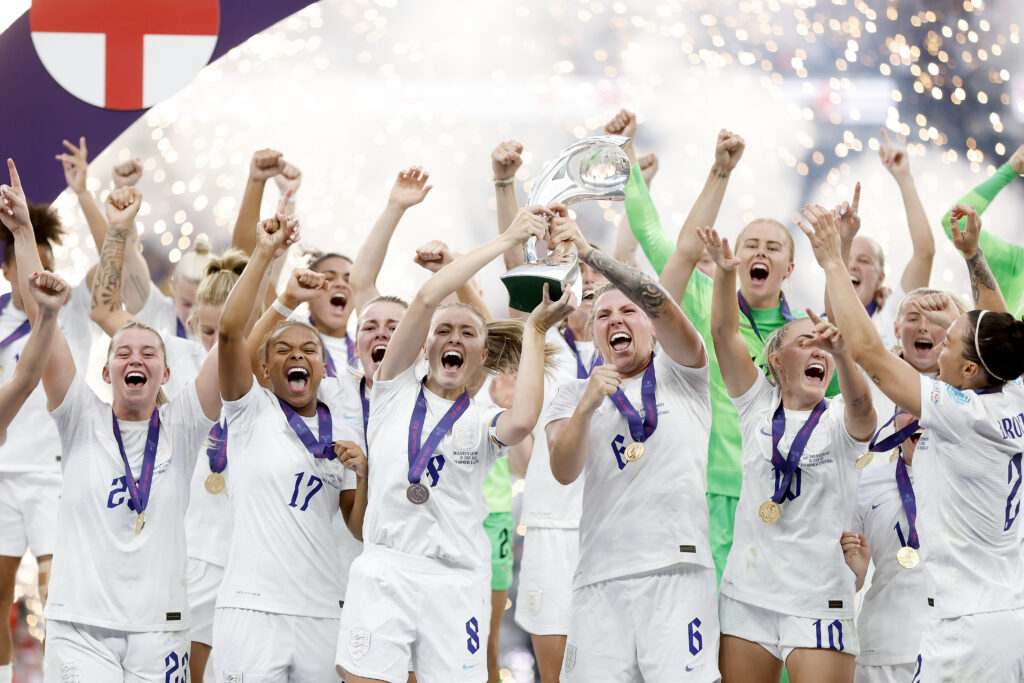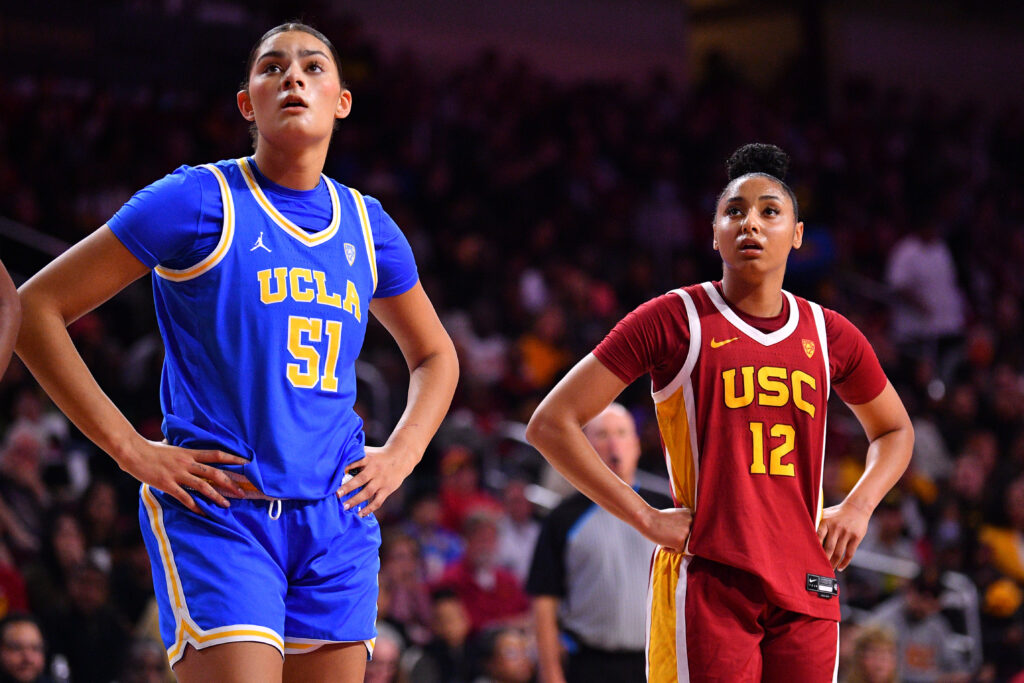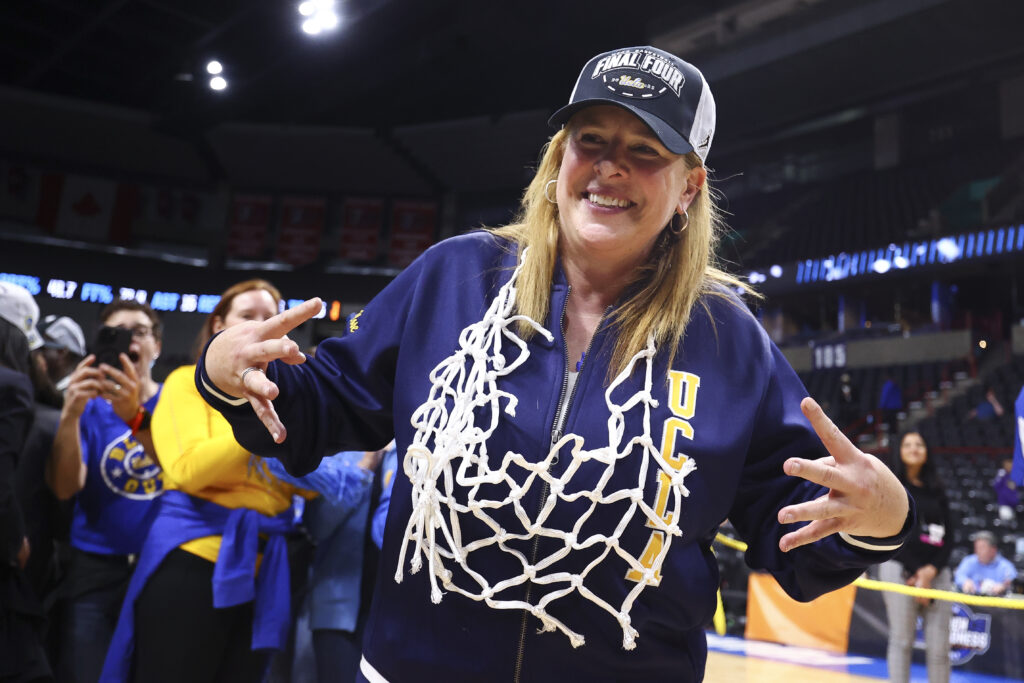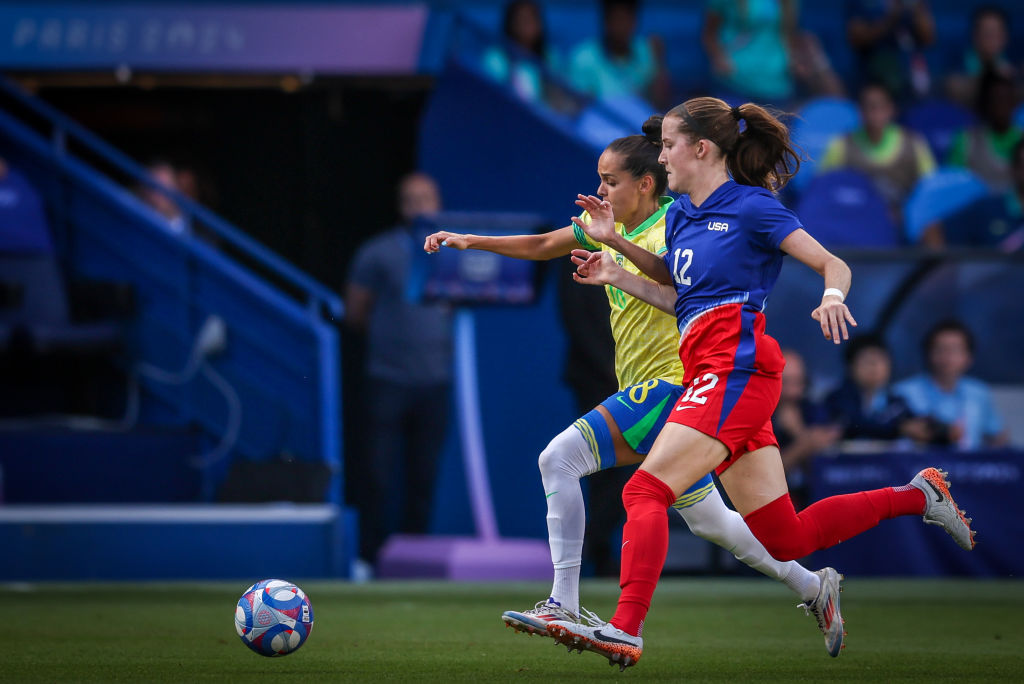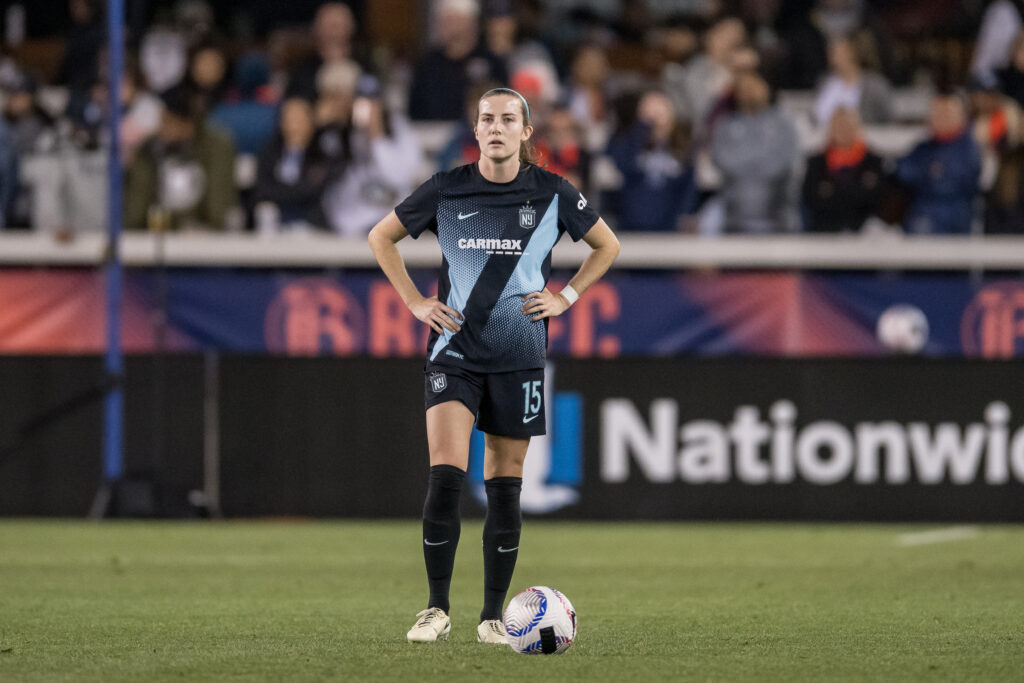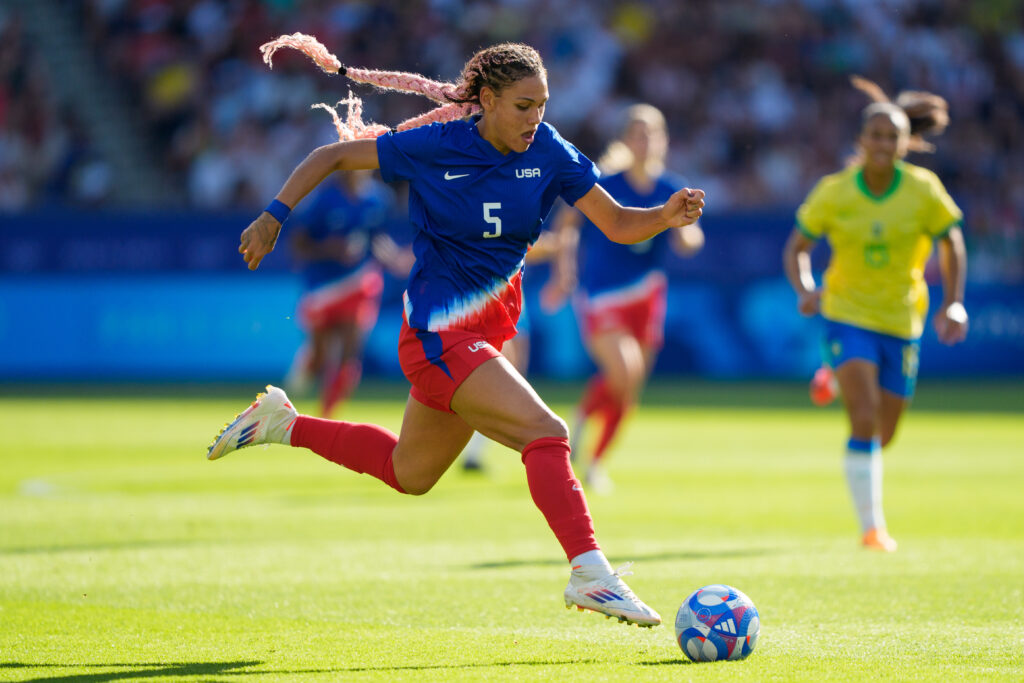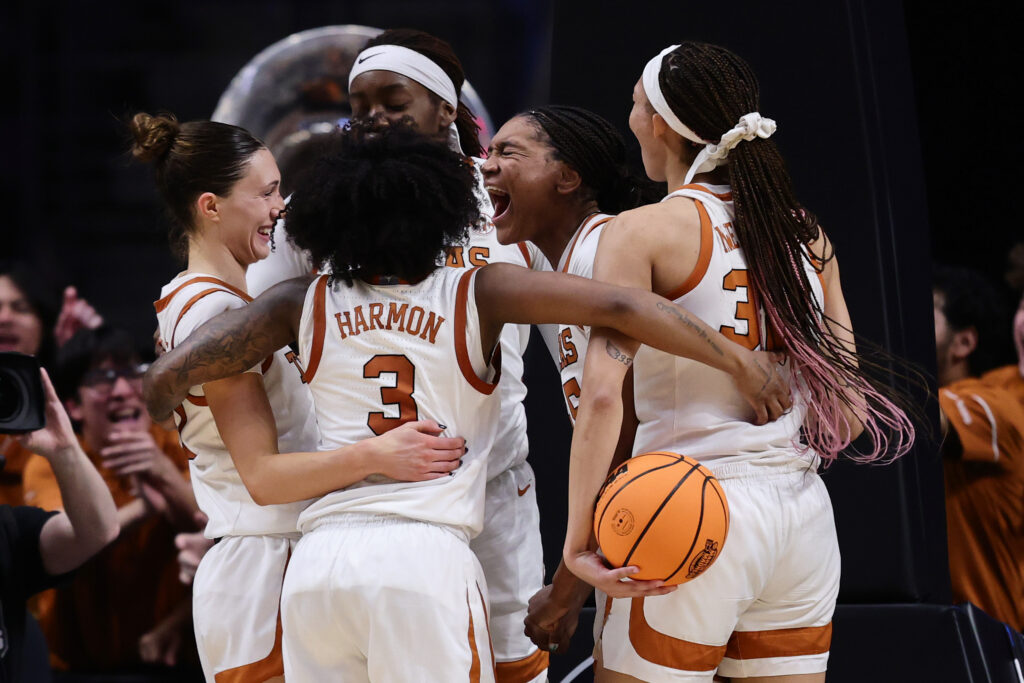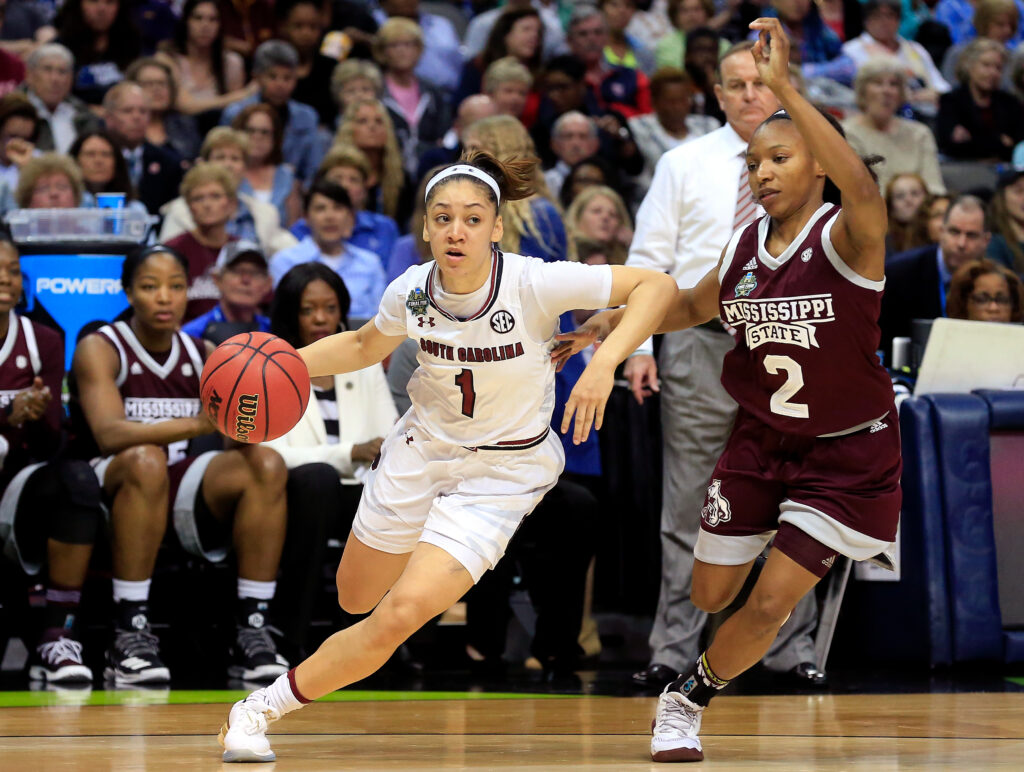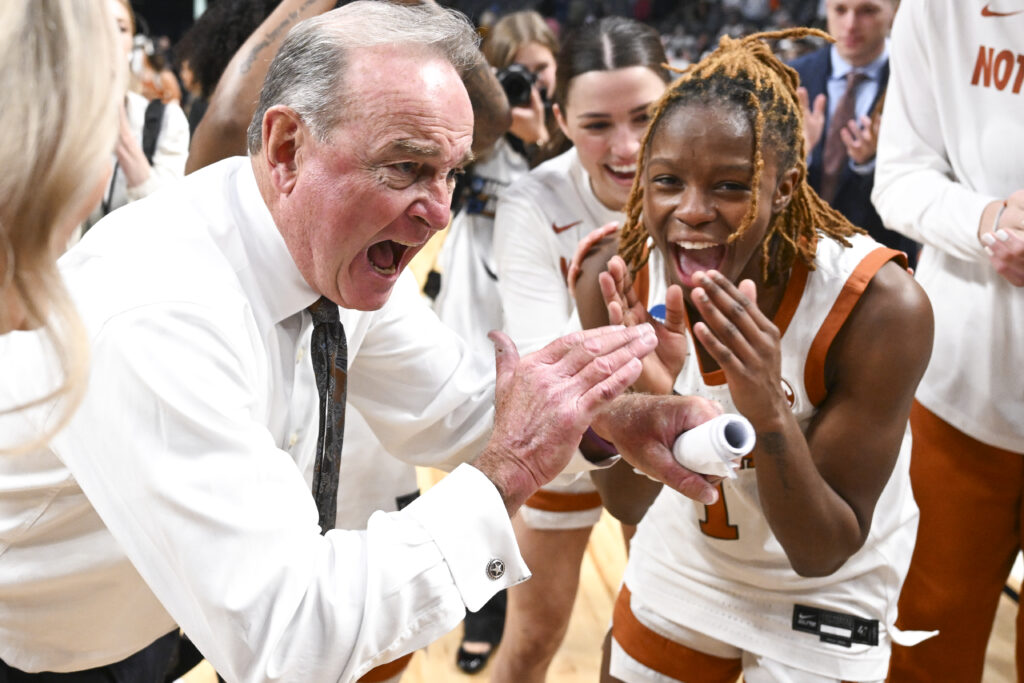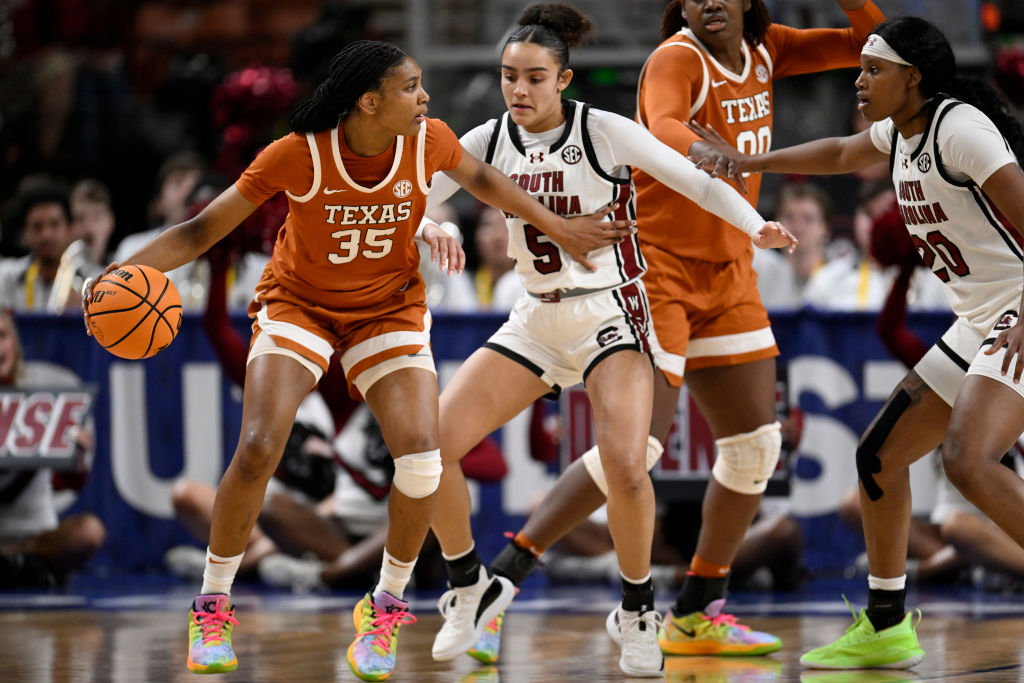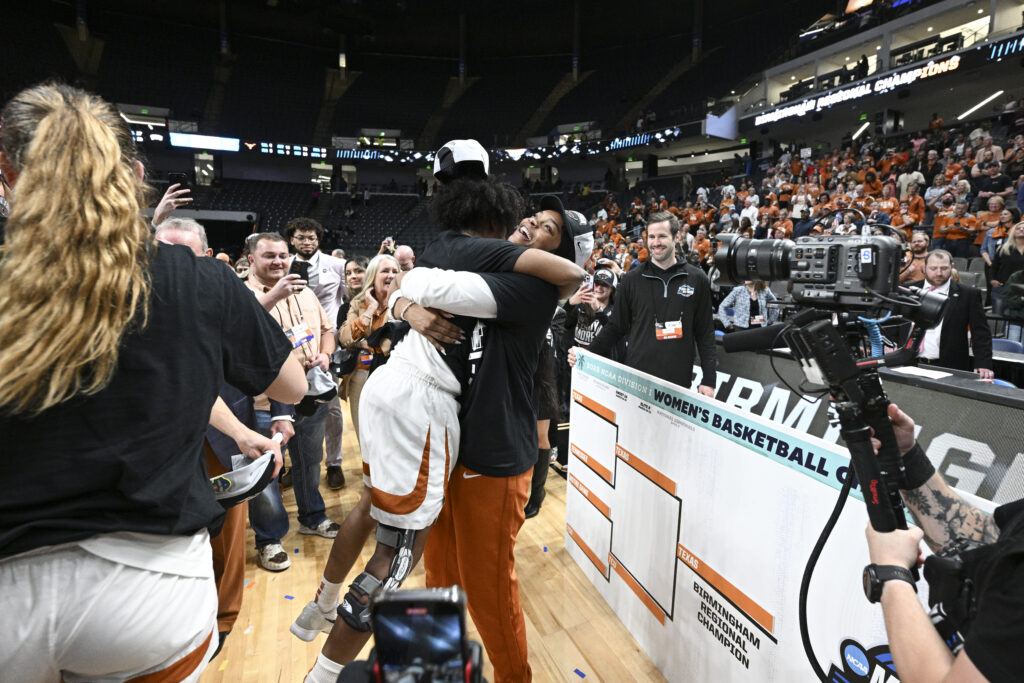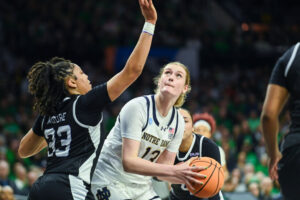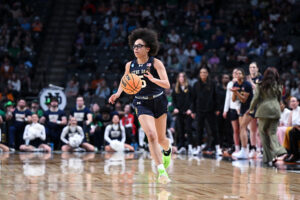Just as WNBA fans and families were beginning to feel at ease, with reports that American players in Ukraine and Russia were returning home safely, we awoke last Saturday to find out that Brittney Griner was taken into Russian police custody over three weeks ago on charges of possessing vape cartridges containing hashish oil. Griner was detained at the airport as she attempted to return to Russia, where she competes for UMMC Ekaterinburg and has played professionally during the WNBA’s offseason for the past eight years.
Suddenly, the real-life consequences of Russia’s political agenda hit very close to home for sports fans in the U.S. At the heart of the conflict in Europe, the lives of professional Ukrainian players were thrown into total chaos as soon as Russia’s invasion of their country began two weeks ago.
Olympic gold medalist and Mystics starting guard Ariel Atkins was competing in Ukraine as things began to unravel. After stints in Poland, Australia and Turkey, Atkins decided to play with BC Prometey, a EuroCup team based in Kamianske, during this WNBA offseason. Atkins led Prometey to a 9-1 EuroCup regular season record, while averaging 20.3 points, 4.9 rebounds and 2.8 assists per game.
At the end of January, the European season paused for a month-long national team break as top players returned to their national team programs for FIBA World Cup Qualifying competitions. Atkins joined Team USA in her WNBA home city of Washington, D.C. for a three-day training camp and two-game series against Puerto Rico and Belgium.
With Russian troops gathering at the Ukrainian border even before she left for the break, Atkins was skeptical about returning to Eastern Europe for the rest of the season and packed up almost all of her belongings for her trip back home.
“It was definitely a tough decision,” Atkins recalled in a recent conversation with Just Women’s Sports. “Ultimately, I decided not to go back as I didn’t plan on crossing the Ukraine border whatsoever, just because I wasn’t sure how I would be able to get out if things ended up being what they are right now.”
But when her agent called to say the team was being relocated to Bulgaria to continue practicing ahead of their EuroCup playoff series against a tough Turkish squad, Atkins found herself back on a plane to Europe to rejoin her Ukrainian teammates.
“I build bonds with my teammates, and I really do care about them,” Atkins said from Turkey, the day before CBK Mersin knocked Prometey out of EuroCup competition. “I just want things to go well for them and I want to help as much as I can. But I honestly, personally, don’t know how. What I’m thinking or feeling or dealing with is not even an ounce of what they’re dealing with.”
The Russian invasion of Ukraine escalated rapidly during the brief time Prometey was practicing in Bulgaria and then competing in Turkey. The team’s Ukrainian captain, Olga Dubrovina, did her best to console her teammates as feelings of helplessness overwhelmed them.
“Everybody cry. Everybody don’t know how to help,” Dubrovina said in her semi-fluent English. “Everybody is scared. A lot of people leave [Ukraine]. The situation is so bad. A lot of people die.”
In shock and sorrow, the team continued to practice and prepare for their playoff game.
“There are moments here and there where you can just tell the room goes kind of somber,” Atkins said. “I feel like my job is to try to make practice more fun or to kind of lighten the mood a little bit as best I can, without being ignorant to the fact of what they have going on with their friends and their families back home.”
After losing that final playoff game and the remainder of the Ukrainian Women’s Basketball SuperLeague season was canceled due to the war, Atkins returned home to the U.S. while her teammates dispersed across Europe. Dubrovina and a couple of her Prometey teammates were able to sign with teams inside Turkey, and will play the remaining six weeks of the domestic league there.
With her 4-year old daughter and husband, a pro soccer player, safe in his native Bulgaria, Dubrovina’s primary concerns now are supporting her family financially and ensuring the safety of her loved ones still in Ukraine, including her parents, grandmother and brother.
“My brother is in the war in Ukraine. I don’t know his movement,” she said. “We don’t know where he is, what he’s doing. It’s army. It’s everything like secret, and we just wait for when he talks, he calls mom.”
Dubrovina, 34, says a few of her Prometey teammates opted to return to Ukraine despite her encouragement that they stay in Turkey until the danger subsided. Those with husbands or fathers younger than 60 years old were the most anxious to return, as men aged 18-60 are currently not permitted to leave the country per President Volodymyr Zelensky’s general military mobilization.
Other teammates scattered to Poland or Belgium, Dubrovina explained. One had a family connection in Canada. Another, who opted to stay and play in Turkey, is planning to use the money she will earn there to get her kids and grandmother safely out of Ukraine when the season ends.

Dubrovina originally left Ukraine in 2014 when tensions with Russia escalated over the annexation of Crimea. After ten years of playing professional basketball all over Europe, the point guard had assumed her playing career was behind her when she became pregnant with her daughter in 2018. She was enjoying coaching youth basketball when an old coach called and talked her into getting back on the court with the newly formed Prometey club in Ukraine. As a result, Dubrovina, her husband and their young daughter have spent the past two years in Ukraine.
Now that her family has relocated to Bulgaria, Dubrovina is the sole provider for the time being. She says focusing on providing for her daughter, who wants to be a basketball player like her mom when she grows up, is keeping her sane during an otherwise unbearable situation. Dubrovina talks with her family during every break she gets, often ten times a day.
She hopes to eventually get her parents safely to Bulgaria, where she envisions staying to raise her family surrounded by her husband’s relatives. The main reason her parents are still in Ukraine is that her grandmother cannot travel.
“I’ll stay with my family, my daughter and husband. And speak with my mom, because now I have grandma who is invalid,” she said. “She can’t move, she’s just in the bed. And I want to take my mom and my family to Bulgaria, but it’s impossible because Grandma can’t move and now it’s so dangerous.”
As to what Dubrovina thinks will happen to her homeland, she says giving in is not an option for her people.
“You need to understand, we’re not scared of nothing,” she said. “We are a people who can’t just stay and shut up … We can’t lose. If we lose, it’s just as if we died.”
She also urged leaders in the West to hear Ukraine’s pleas for military support in the country’s air space.
“[Those] who have power, close the sky for Ukraine, please,” she implored. “We don’t need food. We don’t need help with money. Just to close the sky…We talk about this night and day. Close the sky. That’s all.”
For now, the continuation of leagues outside Ukraine is helping players like Dubrovina better survive this catastrophe. But as the situation with Griner escalates and geopolitical relations become more strained, WNBA players who supplement their salaries overseas during the offseason will have even more difficult decisions to make in the future.
Tessa Nichols is a contributing writer at Just Women’s Sports.
